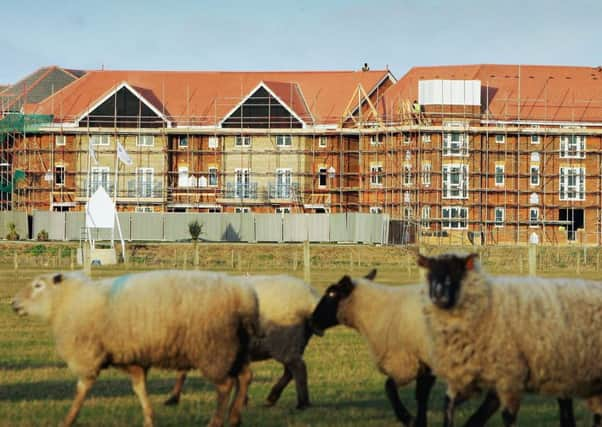Houses are a cash crop that needs careful handling


This contrasted strongly with the firm line Scottish councils took. Here the view was that good quality land had to be preserved and that no new houses could be built outside existing communities unless there was a proven need for the farm to have additional labour.
In such cases the houses could be built but they were irrevocably linked to the farm through a legal agreement.
Advertisement
Hide AdAdvertisement
Hide AdThat restrictive approach brought another tension to planning decisions where the whole system seems designed to encourage conflict rather than provide solutions.
Councillors on planning committees are well used to the “slammed door” syndrome. This occurs after a decision is made and either the applicant or the objector leaves the meeting room taking his/her/their frustration out in a particularly noisy fashion. On hearing this sound, sensitive councillors tend to think “lost votes”.
Largely unpublicised, the Chief Planner in Scotland has sent out a fiery cross telling local authorities to abandon these agreements.
What we have now, although few farmers have so far recognised it, is an opportunity to build an extra house on the farm without having it tied to the business. No sooner has the last brick been put in place and the lawn rolled out than the new house can be sold. It is a nice little earner in tough times.
It adds to a list of money making ventures for farmers when producing food does not prove profitable. Previous schemes such as buying quota or entitlements may be off the agenda and for those investing in wind turbines, solar panels and anaerobic digesters the golden era with payback in single figures of years has passed.
For the farmer now intent on building and selling a new house, and note this can normally only be done once, there is still one requirement to fulfill.
That is to provide prove of need for additional housing for the farming business. Now that could be tough. In the industry, it is widely recognised farms need far fewer workers than they once did. Arable acres are ploughed at ten times the rate the used to be and with one tenth of the labour. Livestock enterprises that used to employ full-time shepherds or cattlers are now run with farming family labour.
Does this mean the proof of needing additional housing becomes a real deal breaker?
Advertisement
Hide AdAdvertisement
Hide AdNot in the slightest. All that is needed is an expert or consultant to make up what seems a sound case. As the saying goes, the piper will play the tune required. Justification reports from agricultural consultants all supporting a new build can be mustered. If they were in the library, they would be in the fiction section.
The fiction succeeds because the language looks good to the layman planners who invariably approve the applications. Scare terms such as stating on site accommodation is needed on account of “increased risk of foot and mouth disease” are used.
Another argument uses labour hours per crop acre as a justification for more housing but the commissioned expert does not get round to mentioning the crop area is rented out to another farmer.
It might be thought that having rented out farm cottages might scupper any plan to build yet another house, but not a bit of it. Claims the rent is necessary to balance the books can clear that hurdle.
There is justification for additional housing in the countryside. Parish records from a century ago show there were far more people living and working in rural areas.
There is also a need to ensure the generation being brought up in the countryside can continue to live there after fleeing or being chucked out of the family nest.
The question is whether we want to end up like Ireland with houses spattered across fields. If we are going to have rural repopulation let it be based on local need rather than greed, which is possible under the present system.
